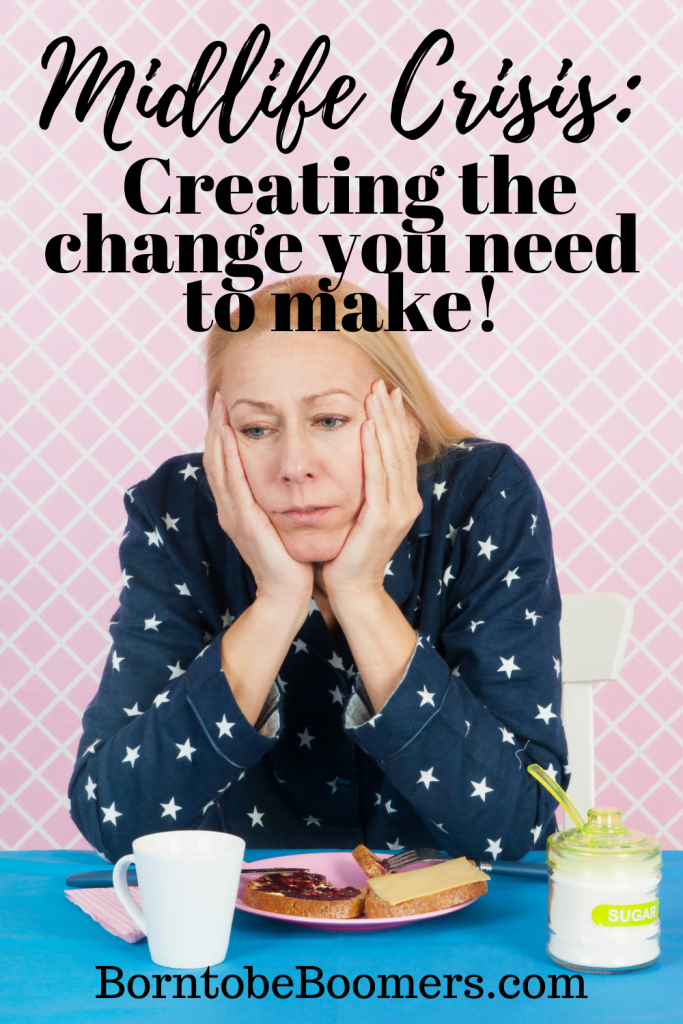Navigating middle age can be daunting—something many of us approach with apprehension. It’s a phase marked by profound introspection, significant life shifts, self-questioning, dips in happiness, hormonal fluctuations, and a myriad of other challenges.
According to a survey by Ipsos public affairs, midlife often prompts desires like buying sports cars for men and seeking relationship stability for women. As Dan Jones noted, these impulses can be attempts to recapture lost youth.
Victor Hugo aptly described middle age as “the old age of youth and the youth of old age.”

People going through midlife crises often grapple with fears of aging, emotional instability due to hormonal changes, and a preoccupation with mortality. Such crises can be particularly hard for empty nesters or those going through divorce.
Are you feeling adrift as you navigate your 40s? You’re not alone. Many people report experiencing a midlife crisis, though scientific evidence supporting its existence is limited.
Table of Contents
What Exactly is a Midlife Crisis?
There’s no one-size-fits-all definition of a midlife crisis. While some psychological surveys suggest it’s not a universal experience, dissatisfaction with life often peaks in one’s 40s and 50s due to various triggers like job loss, empty nest syndrome, caring for aging parents, or existential crises.
According to the Australian HILDA survey, life satisfaction tends to hit a low around age 45. Studies on chimpanzees have even observed mood swings and dissatisfaction in their late 20s and 30s. The so-called “happiness U-curve” shows that happiness tends to dip in midlife before rising again in later years.
When Does a Midlife Crisis Happen?
While the stereotypical midlife crisis is thought to occur between the late 30s and 50s, it can vary widely from person to person. The concept of “middle age” itself is fluid; some people in their 70s still consider themselves middle-aged.
Interestingly, crises can occur at any life stage. For instance, studies show that a significant number of younger adults also face crises in their 20s and 30s.
Symptoms of a Midlife Crisis and Differentiating it from Depression
While not an official diagnosis, a midlife crisis can manifest as:
- A sudden obsession with materialistic items is associated with youth.
- Impulsive decisions like divorce or moving.
- Neglect of personal hygiene.
- Physical changes such as sleep disturbances, weight fluctuations, and reduced strength.
- Behavioral changes like mood swings, heightened anger, anxiety, and sadness.
It’s crucial to differentiate between midlife crisis and depression, as the symptoms can overlap. Both can be debilitating and require professional help if they start affecting your well-being.
Causes of Midlife Crises and Overcoming Them
Midlife crises can stem from various factors, from hormonal changes to regrets about unfulfilled dreams. However, acknowledging these triggers is the first step toward acceptance and moving forward. Embracing the uncertainties of life in your late 30s and 40s can be liberating rather than limiting.
Sometimes, it can just be recognizing that you will no longer tolerate certain behaviors from those who are close to you.
Midlife Crisis in Men and Women
Societal norms often dictate how men and women experience midlife crises. Men may feel disconnected from their families and seek validation through work or material success. Meanwhile, women traditionally grapple with relationship issues, aging concerns, and family dynamics.
However, these stereotypes are evolving. Today, women may experience midlife crises related to career aspirations, societal expectations, or personal growth.

Stages of Midlife Crisis
Swiss psychologist Carl Jung identified five stages of midlife transitions:
- Accommodation: Conforming to societal expectations.
- Separation: Questioning societal norms.
- Liminality: Balancing societal expectations with personal aspirations.
- Reintegration: Prioritizing personal goals.
- Individuation: Achieving self-awareness and spiritual growth.
See: 9 SUCCESSFUL MARRIAGE TIPS TO KEEP THE LOVE ALIVE AFTER 50
Seek professional help
If you or someone you know is going through a midlife crisis or experiencing emotional distress, seeking help is crucial. Here are several ways to get the support needed:
Professional Counseling or Therapy
- Licensed Therapists: A qualified therapist or counselor can provide individualized guidance and coping strategies tailored to your specific situation. They can help you navigate through the challenges of midlife and provide emotional support.
- Psychiatrists: If you’re experiencing severe emotional or mental health issues, a psychiatrist can offer a comprehensive assessment, diagnosis, and treatment options, including medication if necessary.
Support Groups
- Local Support Groups: Joining a local support group for individuals experiencing midlife challenges can be beneficial. Sharing experiences and coping strategies with others who are going through similar situations can provide a sense of community and understanding.
- Online Forums: There are numerous online forums and communities where people share their experiences and offer support to one another. Websites like Reddit and specialized forums often have dedicated sections for discussing midlife crises and related topics.
Self-Help Resources
- Books: There are many self-help books and resources available that address midlife challenges, coping strategies, and personal growth. Reading can provide valuable insights and practical tips for navigating this phase of life.
- Apps: Mobile apps focused on mental well-being, mindfulness, and personal growth can be helpful tools for managing stress, anxiety, and other emotions associated with midlife crises.
Talk to Trusted Individuals
- Family and Friends: Sometimes, simply talking to a trusted family member or friend can provide emotional relief and perspective. They may offer support, understanding, and practical advice.
- Religious or Spiritual Leaders: If you have religious or spiritual beliefs, consulting with a clergy member or spiritual leader can provide comfort, guidance, and a different perspective on life’s challenges.
Take Care of Physical Health
- Regular Exercise: Physical activity can help reduce stress, improve mood, and boost overall well-being.
- Healthy Eating: A balanced diet can positively impact your mental and emotional health, helping you feel more energetic and resilient.
Emergency Help
If you or someone you know is in crisis or experiencing severe emotional distress, it’s essential to seek immediate help:
- Emergency Services: Dial emergency services or go to the nearest emergency room.
- Suicide Hotline: Contact a suicide prevention hotline for immediate assistance and support. In the U.S., you can call the National Suicide Prevention Lifeline at 1-800-273-TALK (1-800-273-8255).
Remember, it’s okay to ask for help. Seeking support is a sign of strength, not weakness. Taking proactive steps to address midlife challenges can lead to personal growth, resilience, and a more fulfilling life.

Conclusion
Midlife crises are complex and multifaceted, influenced by past experiences, societal norms, and personal challenges. Rather than viewing middle age as a crisis, it can be seen as a transformative and enriching phase of life. Embracing this period with acceptance and curiosity can lead to personal growth, resilience, and a deeper understanding of oneself. If you’re struggling, seeking professional guidance can offer valuable insights and support.
See: Top Tips For Making a Career Change After 50
Pin it for later!





